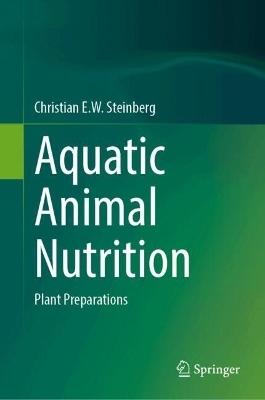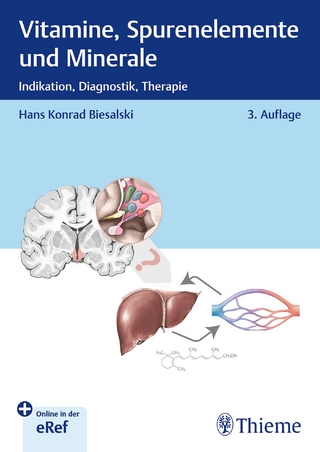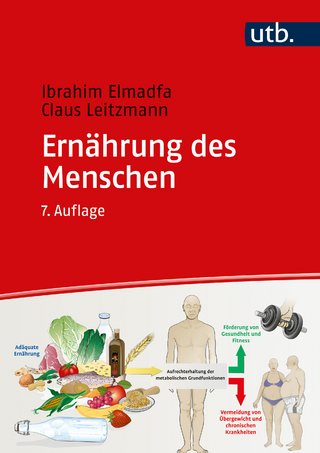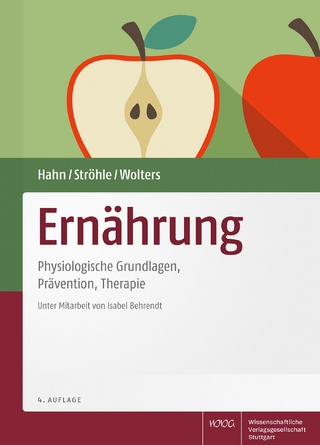
Aquatic Animal Nutrition
Springer International Publishing (Verlag)
978-3-031-70937-1 (ISBN)
- Noch nicht erschienen - erscheint am 07.12.2024
- Versandkostenfrei innerhalb Deutschlands
- Auch auf Rechnung
- Verfügbarkeit in der Filiale vor Ort prüfen
- Artikel merken
This volume first covers the supplementation of aquafeeds with terrestrial plant material used in human medicine and nutrition. Mainly based on the "trial and error" approach, many supplements enhance growth, immunity and resistance to stress. However, other supplements appear to be ineffective and some have adverse effects. A robust and guiding hypothesis for supplementation is not apparent. Therefore, the book proposes the use of artificial intelligence to end the trial-and-error phase. In addition, a graded dosing is rarely used, especially in the low-dose range, so the physiological mechanisms behind the supplements are often only partially understood. This topic of aquatic animal nutrition is still in its infancy. Chapters cover medicinal plants in general, selected medicinal plants in detail, food plants, fruits, essential oils, fermentation residues, and genetically modified plants. One chapter attempts to answer the question of what mechanism may underlie ineffective or even harmful supplementation. Overall, the importance of the intestinal microflora is becoming increasingly clear and points to the imperative need to include gut microbiota in replacement studies. Based on the few epigenetic studies currently available, the importance of these processes is demonstrated. The need to integrate such approaches into future studies is emphasized. The so-called hologenomics approach is inevitable. Can adverse effects be mitigated by adding functional feed ingredients such as prebiotics or probiotics? This volume concludes with aquatic plants (macroalgae, filamentous algae, and macrophytes) as food sources for natural and farmed aquatic animals. Can aquaculture learn from natural aquatic herbivores?
Christian E.W. Steinberg, educated as ecologist, is interested in pure and applied limnology, particularly aquatic organisms and their nutrition as well as the action of natural aquatic xenobiotic substances. Particularly, humic substances and their long-term impact in entire lake systems as well as their short-term and transgenerational effect in fishes and aquatic invertebrates have been and continue to be studied. Consequently, in 2003, he published the highly acclaimed Ecology of Humic Substances in Freshwater with Springer. The continuation of this research interest led to the identification of beneficial effects of natural mild environmental stresses, for instance, by dissolved humic substances, as ecological driving force and the publication of the 2012 Springer book Stress Ecology. In 2018, he began publishing the Aquatic Animal Nutrition series with Springer with "A Mechanistic Perspective from Individuals to Generations" (2018) and "Organic Macro- and Micro-Nutrients" (2022).
In 1995, he was appointed chairholder of freshwater ecology at Humboldt University in Berlin and, for 10 years, director of the Leibniz Institute of Freshwater Ecology and Inland Fisheries, Berlin, Germany. He has published more than three hundred papers in peer-reviewed journals and was frequently appointed guest professor at Salzburg University (Austria), Universidade Federal do Rio de Janeiro (Brazil), Huazhong Agricultural University Wuhan (China), and, since 2009 permanently, Kunming University of Science and Technology (China).
Chapter 1. Aquatic Animal Nutrition: Plant Preparations - 'Ever Tried. Ever Failed. Try again.'.- Chapter 2. Medicinal Plant Survey - Good for Humans, Good for Fishes!.- Chapter 3. Individual Medicinal Plants - 'Good for Humans, Good for Fishes!'.- Chapter 4. Food and Spice Plants - Good for Humans, Good for Fishes - Revisited.- Chapter 5. Fruits and Essential Oils - Good for Humans, Good for Fishes - Revisited.- Chapter 6. Fermentation Residues and Miscellanies - What Else to Offer?.- Chapter 7. Macroalgae, Macrophytes, Filamentous Algae - 'Not to Everyone's Taste'.
| Erscheinungsdatum | 18.11.2024 |
|---|---|
| Zusatzinfo | XIII, 529 p. 137 illus., 111 illus. in color. |
| Verlagsort | Cham |
| Sprache | englisch |
| Maße | 155 x 235 mm |
| Themenwelt | Medizin / Pharmazie ► Gesundheitsfachberufe ► Diätassistenz / Ernährungsberatung |
| Naturwissenschaften ► Biologie ► Ökologie / Naturschutz | |
| Naturwissenschaften ► Biologie ► Zoologie | |
| Schlagworte | carbohydrates • Fish lipids and oil replacements • Functional Food • Phyto- and mycotoxins • Proteinaceous Nutrients • Stirring effects of macro- and micro-nutrients |
| ISBN-10 | 3-031-70937-3 / 3031709373 |
| ISBN-13 | 978-3-031-70937-1 / 9783031709371 |
| Zustand | Neuware |
| Haben Sie eine Frage zum Produkt? |
aus dem Bereich


